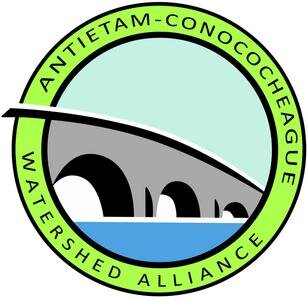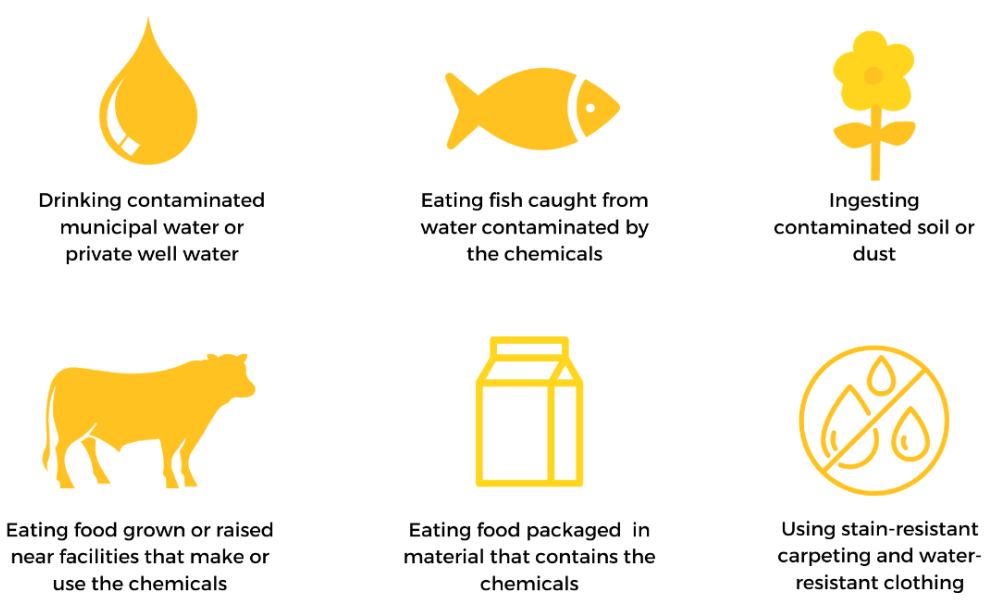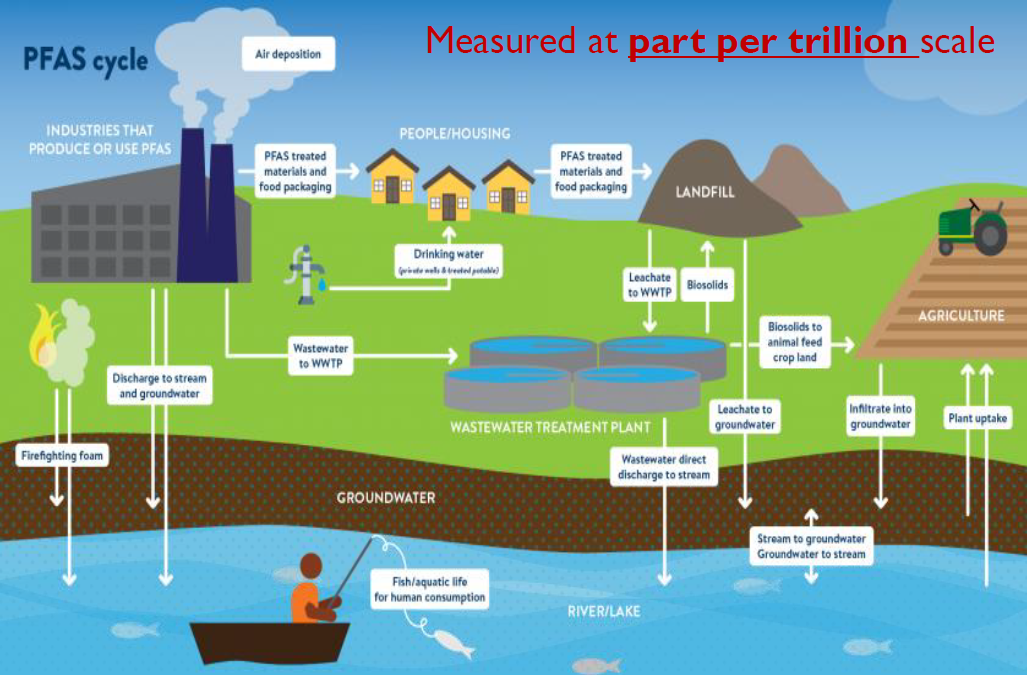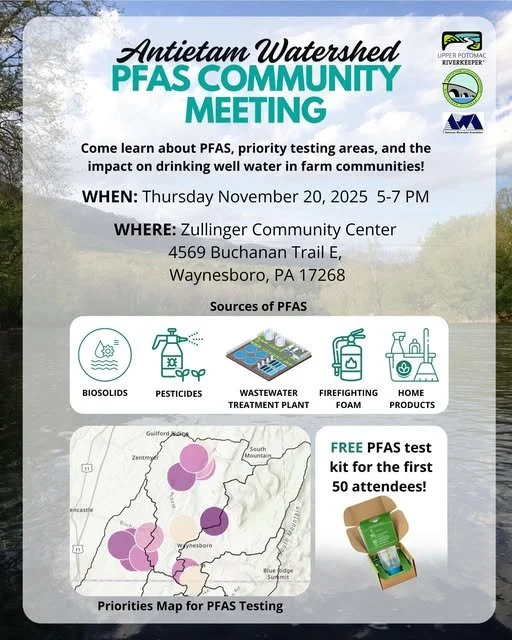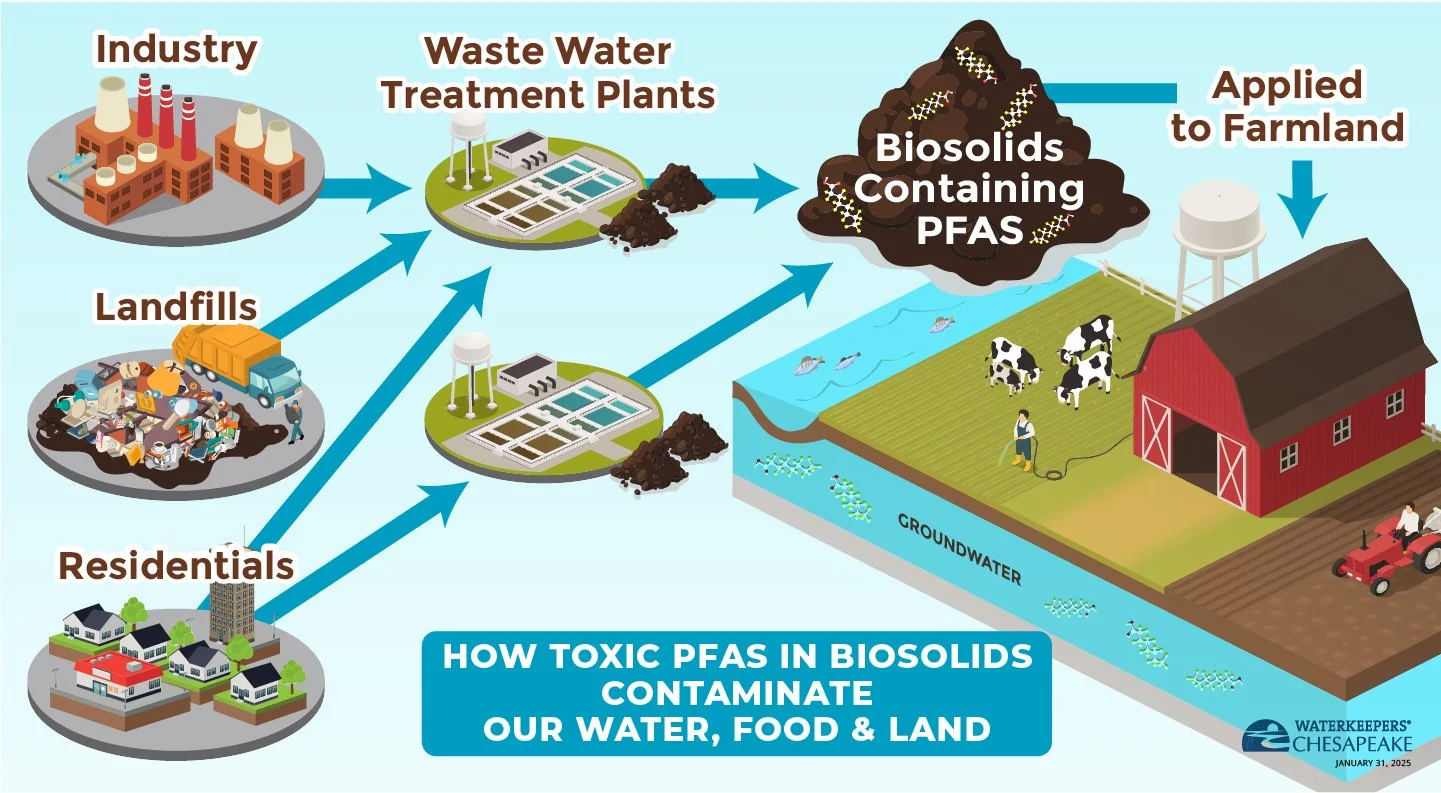PFAS Basics
Information Resources on PFAS and Contamination in Maryland and the Antietam Watershed
What are PFAS?
Per- and polyfluoroalkyl substances (PFAS) are a family of over 12,000 chemicals that resist grease, oil, water, and heat. Also known as "Forever Chemicals", these fluoro chains have extremely strong bonds which make these chemicals water and heat resistant.
First used in the 1940’s, PFAS are now in hundreds of products including:
stain- and water-resistant fabrics and carpeting,
cleaning products,
paints, and
fire-fighting foams.
Certain PFAS are also used in non-stick cookware, food packaging, and food processing equipment.
Read more "PFAS: What you need to know", MDE Website
We are exposed to PFAS by:
Image from MDE Forever Chemicals Storymap
PFAS has been known to have certain health effects ranging from mild to severe: liver problems, risk of asthma, reduced response to vaccines, as well as kidney and testicular cancer. These chemicals have the ability to cross the placenta to unborn children as well as being ingested through breast milk. If tested, all of us would have some levels of PFAS in our blood.
PFAS in the Antietam
In 2020, Upper Potomac Riverkeeper, Brent Walls conducted preliminary PFAS sampling in Antietam Creek focusing on wastewater treatment plant discharge locations. (UPRKN PFAS Sampling Project-Antietam Creek June 2020). The report reveals PFAS in the WWTP discharges were higher than the EPA guidance for drinking water and elevated levels of PFAS in smallmouth bass tissue.
Recently, PRKN received funding to study PFAS impacts in the Pennsylvania portion of the Antietam watershed where biosolid applications are used as agricultural fertilizer. In Maryland, MDE has temporarily suspended biosolid permits due to concerns of PFAS contamination. (See UPRKN Community Meeting November 10, 2025 in ACWA Calendar)
PRKN Community Meeting on 11/20/25 www.acwamaryland.org/events/prkn-pfas-community-meeting
PFAS in Biosolids applied to Farmland
PFAS contamination can also occur through land application of sewage sludge, or biosolids, to agricultural lands. The biosolids are partially-treated sewage sludge from wastewater treatment plants that is used as a low-cost fertilizer for farmland and was generally thought to be free of toxic contamination. When spread on fields, these chemicals can leach into soil, groundwater, and surface waters, posing risks to farmers, rural communities, and local ecosystems. (Learn more about PFAS & Biosolids, PSU Ext)
Further Reading on PFAS in MD:
PFAS: What you need to know, MDE website
PFAS Monitoring and Mitigation is a Priority in MD, MDE March 2025
Maryland's Fish Consumption Advisory Map, MDE interactive website
UPRKN PFAS Sampling Project in the Antietam Creek June 2020 press release & PDF report
